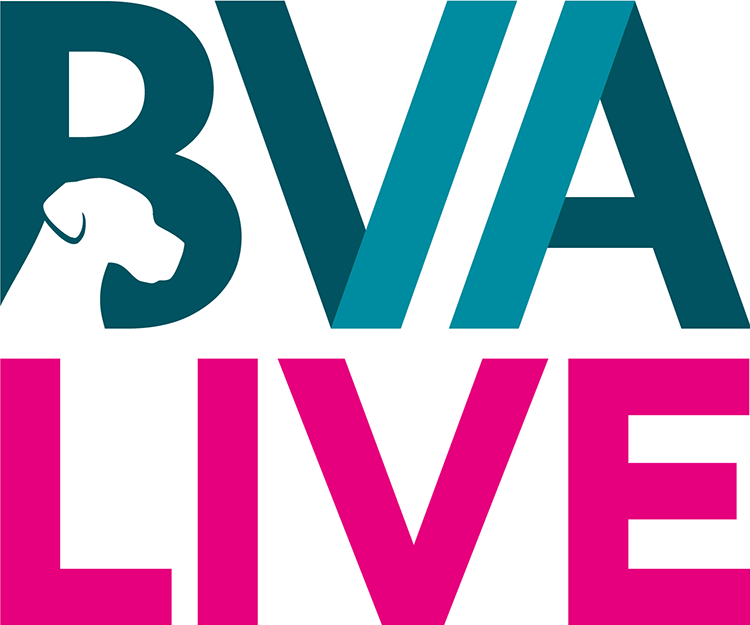An Interview with Hannah Capon: CAMpaigning for Change
)
Q: Can you share with us the highlights of your career journey leading up to your role as the Founder and Director of the Canine Arthritis Management (CAM), and now as a speaker at BVA Live 2024?
A: I feel quite lucky that I'm still as passionate about my role as a vet as when I first started. I've recently started a Master’s in Clinical Pain Management at the University of Edinburgh. Despite being 22 years into my career, I’m still excited about learning, which I’m very happy about.
When it comes to my career highlights, there are a few situations that shaped me. About 15 years ago, I went to an interview and the interviewer said to me, "Your CV comes across as quite flitty." I remember thinking, ‘God, that's really negative to be regarded as someone who's had lots of different jobs’. But many years later, I'm now being acknowledged for having a much wider field of view of how different practices work.
I’ve had another situation like that when I first started thinking about creating Canine Arthritis Management. I had a very prominent vet tell me it's not possible and it will never work. "I think you're wasting your time," they said. But I didn’t listen to them, and that has led me to where I am now.
Also, there was another vet who harmlessly said something to me that I’ll remember forever. We were walking through a waiting room together, and there was a black Labrador, laying on the floor, clearly on its last journey to be put to sleep. I said something along the lines of, ‘God, I wonder if it will ever change’—referring to dogs being brought into practices so late, obviously in a lot of pain. I remember the vet turning around to me and saying, ‘Hannah, it will never change, just accept it. That's how it is.’ That's another thing that comes to my mind when things are getting tough. Because now, as a vet and with my work at CAM, I know that things can change, and it doesn’t have to be like this forever. So, for anybody reading this, remember to stand your ground and follow your own path.
Q: Reflecting on your career thus far, what achievements or milestones are you most proud of and why?
A: I must admit, receiving the 2019 CEVA Welfare Awards Vet of the Year was a monumental moment for me. After dedicating four years to working on CAM, which was a very challenging journey, the recognition at that event was truly overwhelming. Then, in 2020, receiving the Royal College of Veterinary Surgeons Impact Award was equally surreal. These acknowledgments were incredibly uplifting for me because they came at the perfect time to keep my enthusiasm from hitting rock bottom in tough moments and made me feel noticed and appreciated for the work that I’m doing.
Those were some massive achievements in my professional career. However, in my daily work with CAM, I find little highlights every day because of the nature of what I'm doing. I have a lot of contact with owners and having them reach out and say thank you for providing the support and the resources is the biggest driver that keeps me going.
Q: Your upcoming lecture at BVA Live 2024, titled ‘Ten things owners wish we knew - contextualising care through a deeper understanding of the owner experience', will explore the topic of owner experience in veterinary care. Why do you consider this topic crucial for both the veterinary community and the broader public?
A: I consider it incredibly important because, at the end of the day, our responsibility as veterinarians is to ensure the quality of life and health of the animals in our care to the best of our ability. Achieving this requires engaging stakeholders, particularly owners, in following our recommended health plans. Effective communication plays a crucial role here, relying on understanding and empathy. We must strive to see things from their perspective to engage them appropriately.
Since starting CAM, I've been following threads all the time from clients. I guess I've become very aware that their experience is so different to our experience in that consult room. And just having a glimmer of what they're thinking - how they're thinking, what’s their belief system, what’s their previous experience, what’s their knowledge base – is going to help us be able to provide better services.
Q: Could you provide a brief summary of your lecture's content and learning outcomes?
A: The lecture follows up on one I did a few years ago titled "They Just Don't Listen." It focused on the clinician's perspective, despite our efforts, clients seem to do a variation of what we suggest. We delved into the reasons behind this, exploring the differences between adherence, compliance, and concurrence with treatment plans. This time, I wanted to flip it and understand things from the client's perspective. The questions were framed around what they wish their vets had done differently through the course of their journey with their dog's arthritis diagnosis.
The survey was small and admittedly directed towards a biased population, but ten things were distilled from it, with three were suggested more frequently than others. By referring to these "hindsights" for both parties, we can tailor our services accordingly. For example, owners who have lost their companions because of chronic pain often say, I wish that my vet had been more aware of the subtle signs of pain so that we could have caught this disease earlier and done more about it earlier. And I think that gives us then the confidence to create those resources, the waiting room boards, the social media, the newsletters, the surveys, the screening tools that are available. But sometimes we're hesitant to use or suggest them because we're not sure whether our client base is receptive, however, they are receptive. We just need to listen closely. I hope the learning outcomes of my lecture give us vets greater confidence to do what we know is right for all parties, identifying and discussing the subtle signs of pain, and creating proactive plans to combat them.
Q: Finally, what piece of advice would you like to give individuals that are at the start of their veterinary career?
A: I've been a vet for 22 years and have faced my share of challenges. I vividly remember a surgery gone wrong that resulted in an animal's death, which sent me into a spiral of depressive thoughts. It took time, but I eventually emerged stronger. I have also had mortifying "career crushing" moments such as sending head office an email that was certainly not intended for them, but these experiences have taught me resilience.
My advice? Hard times do pass, embrace opportunities that our career offers, even when they seem daunting. Pat yourself on the back every day. Challenges are daily, but they will make you stronger. Make sure you have "another life" that you can lose yourself in for down time. Life is short - it really is! Don't waste it. If things aren't working, either attempt to fix them or grab another opportunity.
Don't give up, make your career work for you, not that you solely work for it!






)
)
)
)
)
)
)





